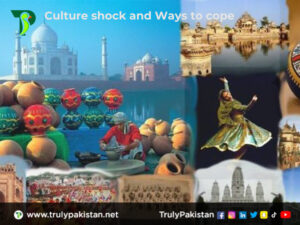- Prepare in Advance:
Before your journey, research and learn about the culture, customs, and traditions of the destination. Understanding what to expect can lessen the shock.
- Maintain an Open Mind:
Maintain receptivity to novel experiences and concepts, even when they present challenges to your preexisting beliefs and values.
- Develop Cultural Sensitivity:
Try to understand the reasons behind cultural practices and norms. This can help you appreciate and respect them.
- Learn the Local Language:
Learning some basic phrases in the local language can go a long way in bridging communication gaps and making local interactions more comfortable.
- Seek Support:
Connect with locals and other expatriates or travelers. Sharing your experiences and challenges can provide a sense of community and support.
- Stay Engaged:
Engage in regional cultural affairs, events, and festivals. Such involvement can foster a deeper sense of connection with the local culture.
- Maintain Healthy Habits:
Continue to engage in activities that promote physical and mental well-being, such as exercise, meditation, or hobbies.
- Keep a Journal:
Document your experiences, feelings, and reflections in a journal. This can help you process your emotions and track your progress.
- Be Patient with Yourself:
Recognize that culture shock is an inherent response to novel environments. The process of adaptation requires time; therefore, exercise patience and self-compassion throughout this transitional phase.


- Refrain from Generalizations:
– Avoid making generalizations or stereotypes about the local culture based on isolated incidents or experiences.
- Seek Professional Help:
If culture shock is causing significant distress or interfering with your daily life, consider seeking the help of a counselor or therapist who specializes in cross-cultural issues.
- Establish Familiar Routines:
Incorporate familiar activities or routines into your daily life to provide a sense of stability.
- Plan Trips Home:
Knowing that you have trips planned to visit your home country can provide a sense of relief and something to look forward to.
- Embrace the Experience:
Regard culture shock as a platform for personal development and self-exploration. Embracing this encounter can facilitate a more profound comprehension of oneself and the global landscape.
- Stay Informed and Adapt:
As you learn more about the culture, adapt your behaviors and expectations accordingly. What initially seemed strange may become more familiar and acceptable over time.
Conclusion
Cultural disorientation is an inherent aspect of acclimating to a fresh cultural milieu. Through the passage of time and a proactive mindset, one can successfully adapt and flourish within their new surroundings. This adaptation process also fosters a heightened appreciation for the cultural diversity that enriches our world.

